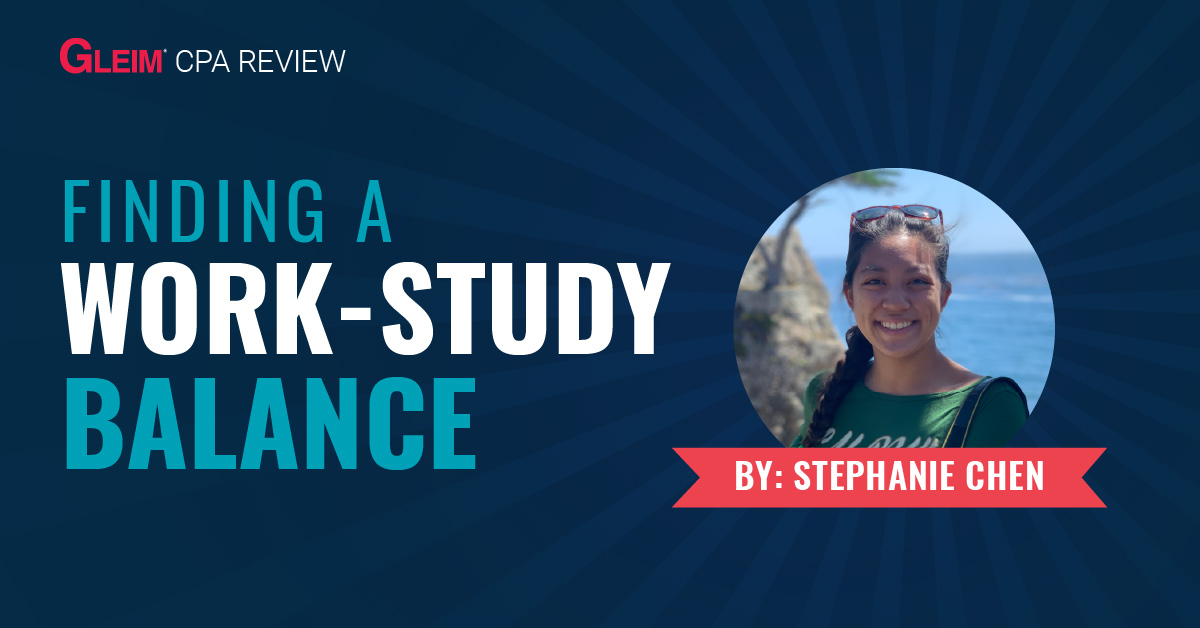Contact Us : 800.874.5346 International: +1 352.375.0772

I always thought that it was recommended to start with FAR, because it was the hardest, to maximize your testing window in case you didn’t pass. However, as a natural-born procrastinator, I felt that passing REG first was good for me, as it put a ticking clock on my shoulder. After all, I thought, FAR is just financial accounting, and I majored in that in college.
I realize now that a large part of the issue with studying for FAR after any of the others is that your expectation of how much time and material the exam covers is skewed. When I was studying for REG, I was able to finish at least three quizzes a day, even on the easier days, and I always finished in less than the allotted time. I had attributed my struggles with the FAR material to how exhausted I had been from work. During the holidays, however, I had my full attention devoted to studying, and it was still just as difficult. It’s a constant push to finish quizzes in the time constraint, and I find myself completely exhausted after reviewing just one unit.
I’ve also noticed that when I get a lot of questions wrong on the quizzes, I tend to get frustrated and not want to work through them the same as I would ordinarily. Because of this, it makes taking quizzes a much more overwhelming task than it was previously. And I feel like I’m not getting as much out of it. Recently, however, I discovered the study session function, and am honestly surprised I didn’t use it for REG.
I do remember trying it out at the time, but I hadn’t liked the formatting as much, and I had wanted to focus on seeing my scores on each study unit increase as I mastered topics. With FAR, however, I am so far from understanding the material that being able to use the study sessions has been incredible. I like to select a few sections at a time, and getting the real time breakdown of why my answer is wrong or right has helped me break down the learning into more manageable sessions. In addition, being able to control the number of questions in a section, as well as pausing in the middle of study sessions, makes me more willing to tackle studying during smaller gaps in my day.
This makes studying itself a lot less intimidating, and the study sessions still tell you which sections you are doing better and worse on. It even breaks it down into subunits so I can select to focus on my weak areas only.
The hardest thing so far has really been making it a point to prioritize my studying. As a tax accountant, busy season is quickly ramping up, so by the end of my workday, it is often late, and I’m tired. I’m forced to make the decision between decompressing for the evening, working out, or studying. When my team asks me to take on extra work, I have a hard time saying no. I want to perform my best at work, but that often comes at the cost of my studying.
In addition, if I save my studying for the end of the day, I’m frequently exhausted and demotivated. I’ve found that my best bet is to study in the morning, as I am fresher then and able to absorb more material. Plus, I love the feeling of getting up early and tackling my morning head-on, with the added benefit of the fact that by the time I start work, I’m fully awake. I tend to block my calendar off from 7 a.m. to 9 a.m., have my breakfast and coffee while I read through a study unit, and then take a quiz before starting work. If I get off at a decent hour, then I will review the quiz and grind through a study session. Otherwise, I tend to save it for the next morning. I do try to make it a point to leave a few hours of my evening free for either a workout, an episode of my favorite show, or a video call with friends.
One of the biggest things I remember struggling with the first time I took a CPA exam was the feeling of not having a break. I had just come off of a rough busy season several years ago, and had scheduled an exam with a rather aggressive study plan. It was, quite frankly, miserable. I had gone from working 14- to 16-hour days, as well as weekends, to giving up my weekends and free weekday hours to study. I was burnt out, and it made me feel like the CPA and the accounting career path as a whole just wasn’t for me. I’ve found that when I feel like I have to sacrifice things I enjoy in order to make time to study, it makes me resent the exam.
This time around, I’m making it a point to take it slow and check in with myself. If I want to be in this for the long game, I’ve realized how important having a healthy balance in my life is. It keeps me motivated and reminds me why I’ve decided to pursue my licensure. After all, our lives and careers are long, and this test is only a small part of them. I’m constantly reminding myself that everyone moves at their own pace, and I just need to move at the pace that works for me (and also fits within an 18-month time frame).